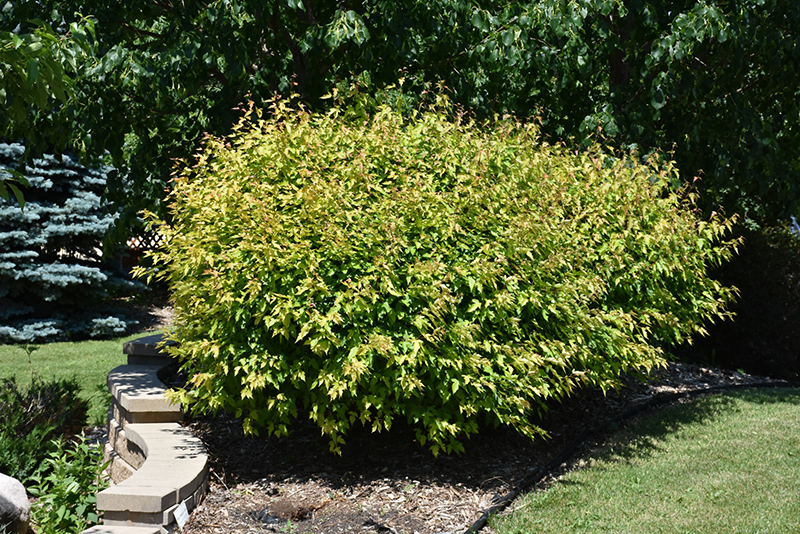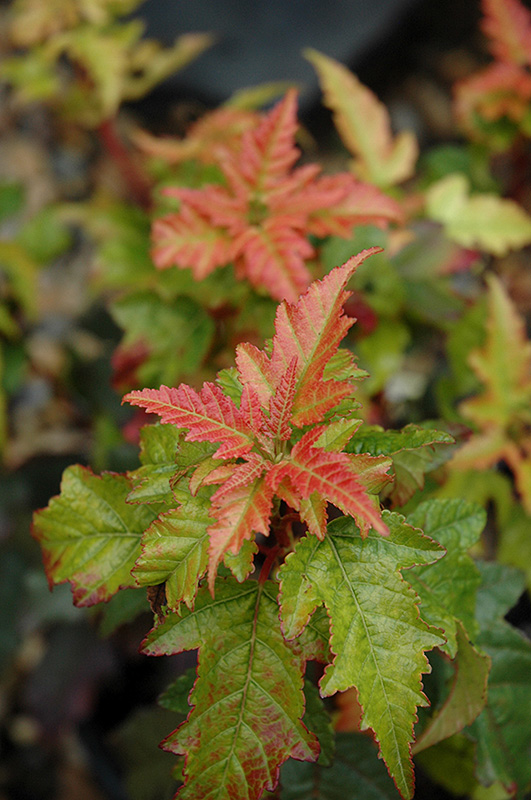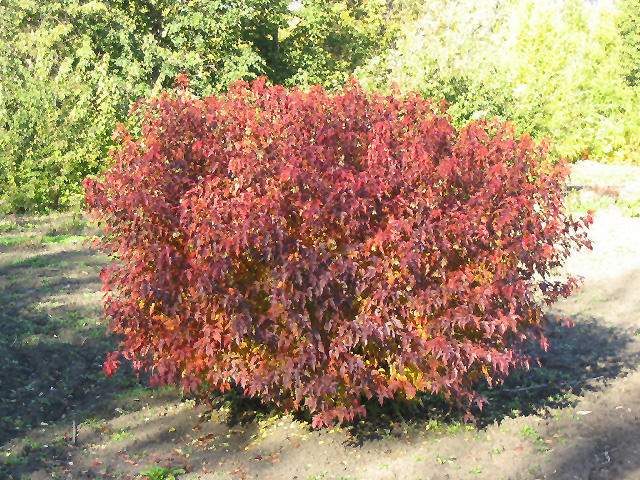Height: 10 feet
Spread: 10 feet
Sunlight:
![]()
![]()
Hardiness Zone: 2b
Description:
A hardy shrub with brilliant red fall color and interesting seeds; perfect height for screening or as a dense hedge; can be used as a hardier substitute for burning bush; adapted to a wide range of soils
Ornamental Features
Atomic Amur Maple is primarily valued in the landscape or garden for its ornamental globe-shaped form. It has dark green deciduous foliage. The lobed leaves turn outstanding shades of orange, scarlet and dark red in the fall. It produces red samaras in mid summer.
Landscape Attributes
Atomic Amur Maple is a dense multi-stemmed deciduous shrub with a more or less rounded form. Its average texture blends into the landscape, but can be balanced by one or two finer or coarser trees or shrubs for an effective composition.
This is a relatively low maintenance shrub, and should only be pruned in summer after the leaves have fully developed, as it may 'bleed' sap if pruned in late winter or early spring. It has no significant negative characteristics.
Atomic Amur Maple is recommended for the following landscape applications;
- Mass Planting
- Hedges/Screening
- General Garden Use
Planting & Growing
Atomic Amur Maple will grow to be about 10 feet tall at maturity, with a spread of 10 feet. It tends to fill out right to the ground and therefore doesn't necessarily require facer plants in front, and is suitable for planting under power lines. It grows at a slow rate, and under ideal conditions can be expected to live for 40 years or more.
This shrub does best in full sun to partial shade. It is very adaptable to both dry and moist locations, and should do just fine under average home landscape conditions. It is not particular as to soil type or pH. It is highly tolerant of urban pollution and will even thrive in inner city environments. This is a selected variety of a species not originally from North America.



